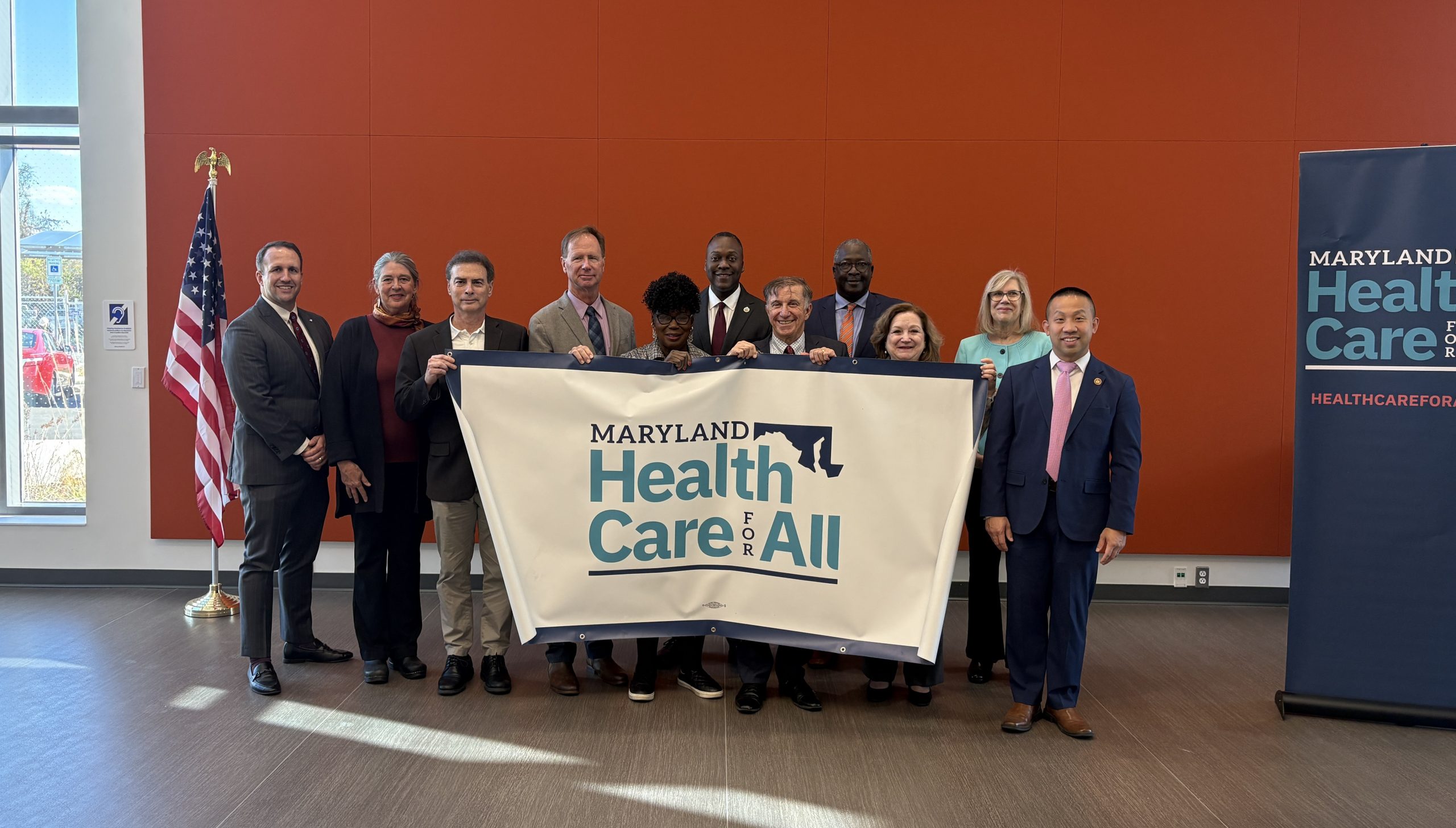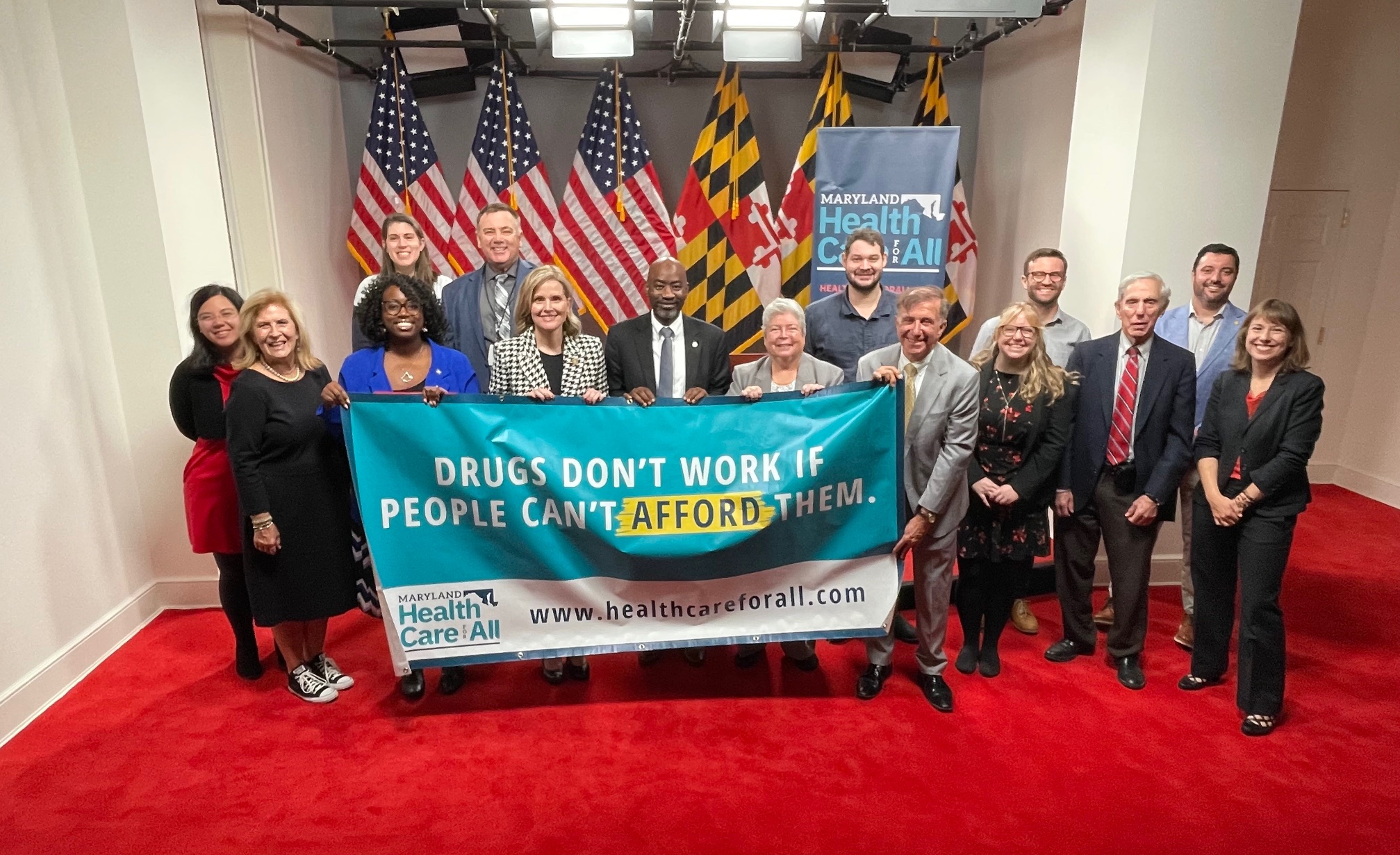Tbe Gazette
Posted: Sunday, September 23, 2012 5:00 am
By TINA REED, Staff Writer
Dale Wagner’s leukemia treatments put off his wedding plans too long.
So last month, the Stevensville resident checked himself out of the hospital to exchange vows with his bride, Nikki, in a small ceremony on Kent Island.
It was a happy day in the midst of Wagner’s fight against a form of cancer that exhausted many treatment options and tested the bounds of his health coverage. He can no longer work and pays $1,600 a month to extend his former employer’s health benefits, using a provision of federal law.
Those benefits run out in January 2014. That’s the same month the state health insurance marketplace required by the 2010 federal health care law — the Patient Protection and Affordable Care Act, often referred to as Obamacare — is set to be fully operational.
The 35-year-old Wagner is one of thousands around the state who still don’t know how they’ll be affected.
“I need to read more about it because I really don’t know,” Wagner said.
Maryland officials tout the state as a national leader in health care reform. But with elections fast approaching — and Republicans vowing to repeal the Affordable Care Act if they take control of Congress and the White House — many wonder what will happen in Maryland if that legislation disappears.
Off to the races
Maryland officials were quick to support the 2010 federal law, which requires all to eventually have health insurance, but also mandates that states create managed marketplaces to meet the demand.
In April 2011, Gov. Martin O’Malley signed legislation creating the state’s insurance exchange. Maryland joined six other states and the University of Massachusetts Medical School in developing the new exchange model.
The exchange’s website was unveiled last month; open enrollment is planned to begin in a little more than a year.
Maryland stands in contrast to the neighboring state of Pennsylvania, whose Republican leadership has refused to create an exchange, said Dr. Stephen B. Thomas, director of the Maryland Center for Health Equity in the University of Maryland School of Public Health.
“States like Maryland provide a window … (into) what it takes to implement the law and involve stakeholders,” Thomas said. “I would not want to be in a state where leadership declared war on the Affordable Care Act. It creates a lot of uncertainty in the population.”
The state has gained an edge by working on the exchange quickly, said Matthew Celentano, deputy director of the Maryland Citizen’s Health Initiative. “It’s going to be here before we know it and there’s still so much to do,” Celentano said.
As Maryland races to comply with the law’s requirements, small businesses and their employees are concerned about whether health care costs will increase, said Amanda Austin, director of federal public policy at the National Federation of Independent Businesses.
The NFIB opposed the Affordable Care Act.
“What is Maryland doing and is it going to be more affordable?” Austin asked.
If members of Congress launched serious challenges to federal health care legislation after the election, they might win the support of small businesses, she said.
But Celentano said that no matter what happens in November or to Obamacare, the state has already made a significant commitment to creating the exchange and has received a lot of federal money for the project.
Thomas doesn’t believe the repeal of the Affordable Care Act is possible. He noted that when the Civil Rights Act was initially passed, many politicians made futile promises to repeal it.
A lot of claims are made “during the heat of an election,” Thomas said.
Fighting breast cancer
Patients like Carol Gary are concerned about what the health care exchange will mean for people like her who can’t afford health insurance.
In June, the 44-year-old Glen Burnie resident finally convinced her doctor to further examine lumps she’d had for years on her breasts, which had been dismissed as cysts.
Gary was given a diagnosis of stage 3 advanced breast cancer. And she said she also got an important lesson in health care.
“They’ve made a box you should fit into with your age (and) family history to have breast cancer,” she said. “But if there is any doubt in your mind, insist on getting further checked and just keep insisting.”
As a server at a Glen Burnie restaurant and a single mother of a teenaged boy, Gary had no health insurance. Given the cost of plans on the individual market, it made just as much sense for her to pay for health costs out of her own pocket.
Then she was diagnosed with cancer. She will receive a double mastectomy in December.
Gary said she wishes she could purchase affordable group health insurance through her employer, but doesn’t believe the Affordable Care Act’s requirements are the right approach.
She doubts the Maryland health insurance exchange will actually bring costs down. She also doubts she would qualify financially for any exemption from requirements that Americans purchase insurance.
She did qualify for Medicaid and, for the first time in her life, signed up for that government resource.
As someone who describes herself as extremely self-reliant, she said she struggled with having to ask for help.
“I have way too much pride. That’s part of a lesson through this,” Gary said. “I don’t like being out of control of my health.”
Figuring out costs
A few months before proposing to Nikki, the 35-year-old Wagner started noticing odd symptoms, such as recurring headaches. He developed an irregular heartbeat in October.
When he finally went in for a doctor’s appointment, the doctor suggested he get a blood test. Hours later, he received a call telling him to go to the hospital.
“Anytime the doctor says something like that, your heart just stops,” said Nikki Wagner.
By the following week, Dale Wagner was undergoing his first chemotherapy treatments. He ended up taking months off of work as he underwent treatment. He went into remission by mid-February.
But this past May, tests showed that the leukemia had returned.
“It was so hard,” Nikki Wagner said. “We just had to think of it as the next step.”
Doctors at Johns Hopkins University asked if he’d like to discuss hospice care.
“I said, ‘That’s ridiculous. I feel too good for that to be the case,’” Dale Wagner said.
Wagner said he purchased the best plan he could buy through his employer for himself and his two children. It costs $715 a month and has 100 percent coverage with no deductible. He even opted for short- and long-term care.
But when he was healthy, he said, he never realized that this coverage could come up far short of actual expenses.
He said he purchased secondary insurance through his new wife’s employer and believes he has been protected by provisions of the Affordable Care Act.
Then, last month, Dale and Nikki Wagner wed — before jumping on a plane to the University of Texas’ MD Anderson Cancer Center in Houston to begin treatment. It’s expected to last at least 90 days.
The Wagners said they put all of their savings into paying for Dale’s stay in an apartment in Texas. Fundraising efforts by their family, they said, have been helping them pay for basic living expenses and transportation in Texas.
Dale Wagner said that for now he’s focusing on the task at hand, continuing his treatments, and keeping a positive attitude.
“I’ve just got to focus on today,” he said.
Last modified: September 24, 2012



